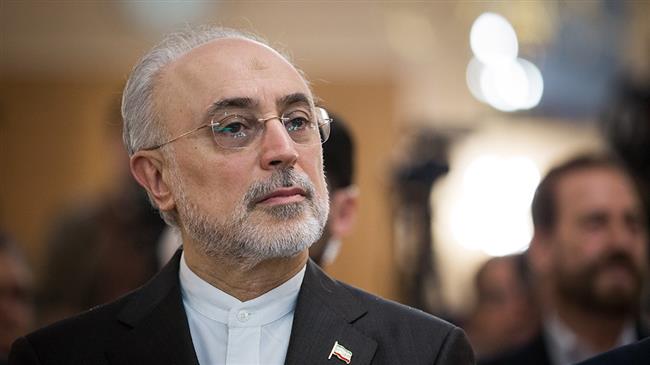Iran builds hall for manufacturing modern centrifuges


Iran has built a highly-advanced hall meant to host manufacturing of modern centrifuges, the country’s nuclear chief says.
Ali Akbar Salehi, the head of the Atomic Energy Organization of Iran (AEOI), said the facility has been built on the orders of Leader of the Islamic Revolution Ayatollah Seyyed Ali Khamenei, IRNA reported on Sunday.
“The hall has now been well equipped and rendered operational,” Salehi said.
“We take an ad hoc decision in proportion to each circumstance,” he said of the measure.
“Another example was the decree issued concerning [manufacturing] of nuclear propulsion devices,” the official said, noting that the project would take 10 to 15 years to complete.
Both the measures lie within the limits set by the country’s 2015 nuclear agreement with world countries, officially known as the Joint Comprehensive Plan of Action (JCPOA), Salehi noted.
The International Atomic Energy Agency (IAEA) once again confirms that Iran is living up to its commitments under the 2015 multilateral nuclear agreement.
The AEOI chief, however, cautioned that the country could suspend some of the restrictions it has accepted as part of the agreement such as the ones concerning the volume and level of enrichment, or eventually completely leave the accord.
Concerning the last prospect, though, he said, “I hope that with the help of the 4+1 countries, this would never happen since all will suffer [as a result].”
He was referring to the UK, France, Russia, China, and Germany, the countries remaining part of the accord after the United States ended its participation.
US President Donald Trump pulled the US out of the deal in May, and said he would reinstate the US nuclear sanctions on Iran and impose “the highest level” of economic bans on the Islamic Republic.
The United Nations, the European Union, which coordinated the talks leading to the deal, and the other signatories to the JCPOA had all warned Washington against the withdrawal, calling the agreement a pivot of regional and international peace and security.








